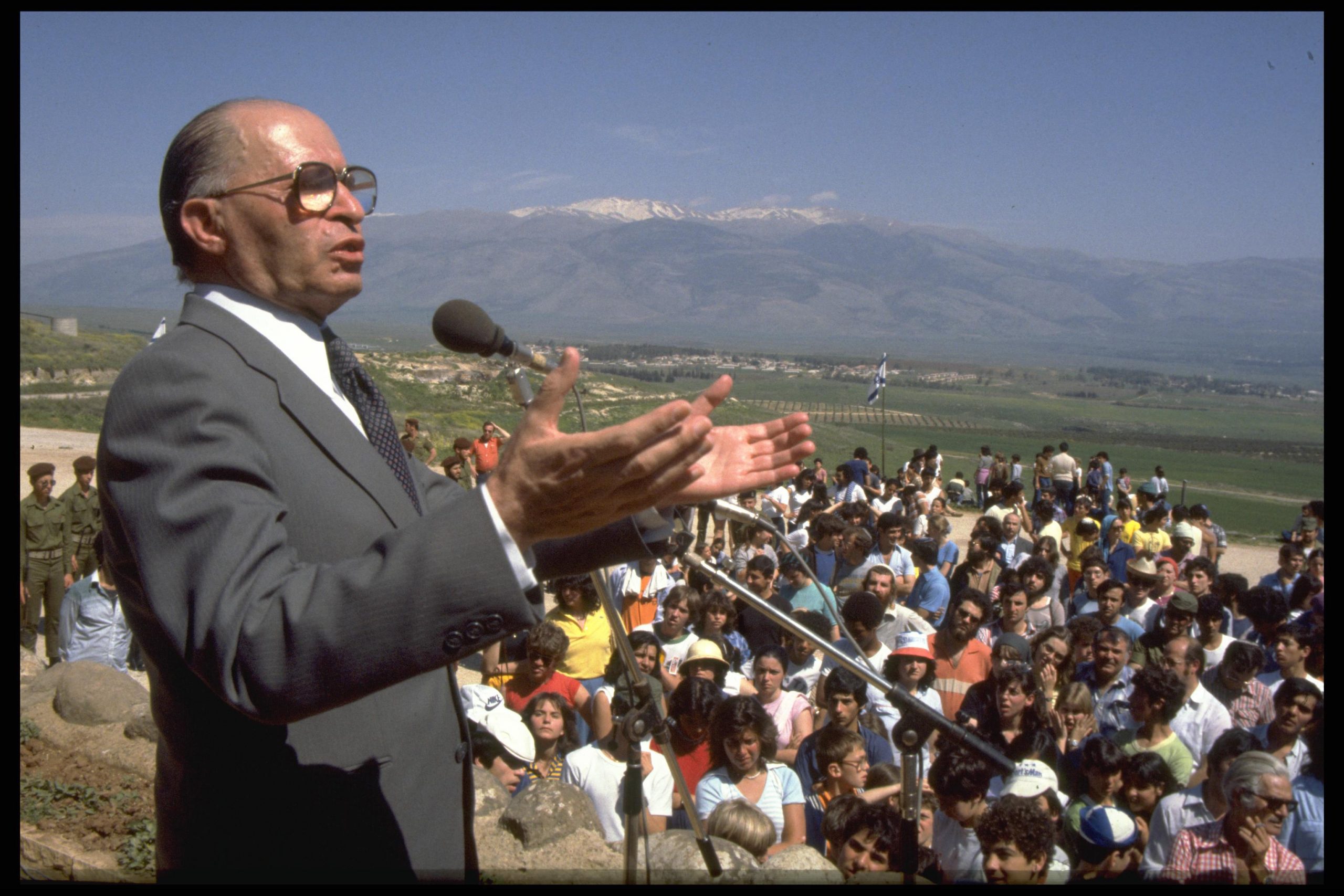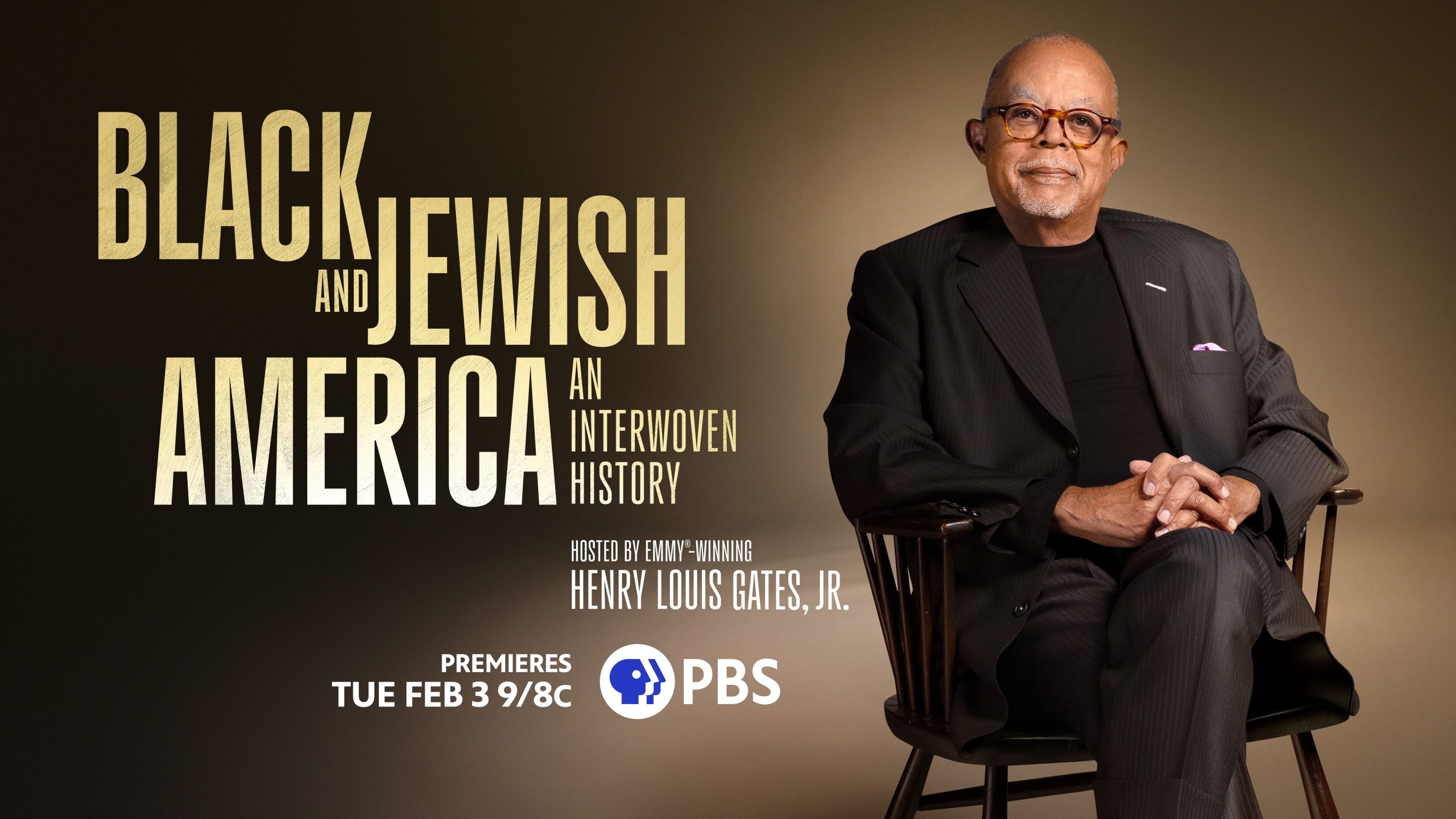
Jonathan Gruber recently spoke to Solzy at the Movies about the new documentary, Upheaval: The Journey of Menachem Begin.

How did you first become interested in making a documentary about former Israeli Prime Minister Menachem Begin?
Jonathan Gruber: The Menachem Begin story started with Rob Schwartz, who is the executive producer of the film. He read a book called The Prime Ministers by Yehuda Avener and they talk about four Israeli prime ministers. Begin was the one that Rob really took a liking to and became super interested in and wanted to watch film about Begin in but there were no films about Begin. He was the former chief of staff for Senator Joe Lieberman when Joe Lieberman was the majority leader in Connecticut. They just got to talking and it turns out they were both reading the book and they were both taken with Begin. Rob said, Hey, I’ve got this crazy idea, should I make a film about Menachem Begin? And the senator said, “Yeah, go for it. I’ll help anyway that I can.” A year later, we connected, which was in 2019. Rob was looking for the right person to tell his story and I was grateful for the opportunity.
In watching the film, I get this sense that he was unable to leave the Holocaust behind him.
Jonathan Gruber: Yeah, what gives you that sense? Well, I mean, I don’t want to make light of it. It’s hard to imagine what it would be like to have your family killed, to be on the run, and how that would impact you. My grandparents were all Holocaust survivors and they’ve all dealt with it in different ways. But that was an important part of the story because it was clear to me that the Holocaust was part of every decision that he made. Whether it was not wanting to accept reparations from the German government to not firing back on David Ben-Gurion in the Haganah when the Altalena, the boat that he was on, was under fire, to the bombing of the Osirak nuclear reactor, everything was about there will not be another Holocaust. He would do everything under his power to protect the Jewish people and the State of Israel.
Was there anything that surprised you during the making of the film?
Jonathan Gruber: There were lots of things that surprised me. I think that the first was not knowing that he was just—again, part of his challenging experiences in life was being in the Gulag in the Soviet Union. That was just remarkable, that experience that he had, and that he made it through. I think, also his democratic liberal values, his reaching out to people who were underserved, whether they were in Israel or coming to Israel. His saving of the Vietnamese boat, people who were not Jewish. His bringing the Ethiopian Jews. His agitating for Russian Jews, supporting the Mizrahim and the Sephardim, the North African and Middle Eastern Jews in Israel, who were really discriminated against to Arab Israelis, who as citizens, were under Israeli military rule in villages. He, in the opposition, said, this isn’t right, that they should have equal rights as citizens. I think a lot of people don’t know about that. I certainly didn’t know. I didn’t know much more about him outside of the fact that he made a peace treaty with Israel with Egypt, which is, I mean, of all the things that we talking about, that one is probably the most remarkable achievement.
What kind of lessons do you think Israeli politicians could learn from him today?
Jonathan Gruber: Menachem Bagin stood—as Ambassador Michael Oren says in the film, You could love him, you could hate him, but you couldn’t say he was a hypocrite. He took responsibility for his actions, whether it was the bombing of the Osirak nuclear reactor, he said, “We have nothing to apologize for.” It turns out that in hindsight that that was a tremendous strategic move and actually really lauded ultimately—Saddam Hussein wasn’t really meant to have a nuclear weapon—to things that didn’t go well. The Lebanon War, for instance, which was tragic and the Sabra and Shatila massacres. He resigned. He just said, I can’t do it anymore. The other thing is that he never enriched himself. He gave away his Nobel Peace Prize money. When he left office, he didn’t even own a house. People had to put together a collection for him so they could rent him an apartment in Jerusalem. These are all tremendous attributes that I think leaders—not just in Israel but leaders anywhere could learn. If things don’t go well, take the credit, that’s fine when it goes well, but take the blame and also don’t enrich yourself through your position.
If he were alive today, would there be a two-state solution?
Jonathan Gruber: I’m not sure. That’s a really good question. I mean, he was responsible for expanding the settlements in the West Bank. In the film, we talk about it—that it’s obviously very problematic. I think that what Menachem Begin wanted was peace for the Jewish people. If there was peace that could be achieved through a two-state solution, then there would be. That’s really all I can say. It’s hard to hypothesize about someone who died 30 years ago.

How long was the initial cut?
Jonathan Gruber: That’s a good question. Not many people really ask that. I was grateful that the initial cut was not much longer than 90 minutes. It was not a massive thing. I’d like to think that I’m pretty ruthless and so once I got things down on paper and we put that together, we weren’t not that far from 90 minutes—maybe it was two hours but I don’t even think so. I was very excited. I was constantly harassing my post-production producer, Susan Grandis Goldstein, and my editor, John Ayala. When we would go through a cut like, How long is it now? How long is it now? Because in my mind, a doc really shouldn’t be much longer than 90 minutes unless it’s a four-part series or something. It felt like 80 to 90 minutes was about right so we were in the ballpark for most of it.
Where was post production or production when the pandemic hit?
Jonathan Gruber: I’m based in Maryland, outside of DC, and so we were editing in Maryland. We had just rented some office space, which was fantastic, and then we just let the office sit for six months. We pulled out the hard drives and our editor edited remotely. We did a lot of Zoom sessions. It obviously was a lot slower than it should have been. We were hoping to finish it in May of last year and then we actually took us about five months longer than it normally would have taken. We also had to deal with archive houses that were closed. There was the Carter Center that had all this remarkable footage from Camp David—high-res stuff—and we weren’t able to get it for a while. We were doing some gyrations trying to figure out how to get everything in time.
What were the biggest challenges with doing post during a pandemic remotely?
Jonathan Gruber: Just things where I could sit in the room and say, You know what? Let’s make it 10 frames shorter or let’s adjust that bite or let’s do the cutaway sooner. Those things that just happen so much more quickly in the room together where I’d have to give notes and have to say here at one hour and 26 minutes and 12 seconds, bring the footage in sooner. And oh, no, that’s not soon enough. I watched this film so many times in so many ways. Sometimes, I’d watch it five or six times in two days because I just had to get it right. There’s a famous phrase I’m sure you know about a film: It’s never completed, it’s merely abandoned. At some point, you just have to walk away and say, we’ve done it, we’ve done a good job, and we’re happy with it. We can always tweak it. We’re grateful that we that we got our production done. Had we not gotten our production done six weeks before Covid, I’m not sure if we’d be having this conversation now.
Have you had a chance to watch the film with an audience yet?
Jonathan Gruber: That is a great question and the answer is no. There have only been a few screenings at festivals. They’ve all been virtual. I think the first in-person screening, which I don’t think I’ll be at, is in Israel on June 7, the day that the Facebook Live premiere happens. It’ll be at the Menachem Begin Heritage Center but I don’t think I’ll be there. I’m sure at some point, we’ll have it. That’s something I’m really missing.
What has the reception been like on the festival circuit from what you’ve been able to find out??
Jonathan Gruber: It’s hard because virtual festivals, you don’t quite know. They’ll say, Oh, it was in the top 20 of people that bought tickets but you don’t really get so much feedback. What I’ve heard from people, which I’m really happy about, is that—because obviously, this is somewhat of a political film—people on the right on the left both have complaints about the film. I’m really happy that I’ve annoyed everybody, which is good.
What do you want viewers to take away from watching the film?
Jonathan Gruber: Just to get to know the man. Menachem Begin is an integral part of Israel’s history and the Middle East. People can understand a little bit more about Israel today by watching this film and just see it through his eyes. We want to think we did a nuanced job in telling a complex story. It’s not all one sided and hopefully that people can understand more than when they started. Hopefully it’ll spur them to read more, dig deeper, and learn more because the film is really just the start of it. Menachem Begin wrote two books. They can read The Revolt, which was about his time in the Irgun as a pre-state Israel fighting the British. He also wrote a book called White Nights, which is about his time in prison. He was really just a remarkable guy, a remarkable leader, a person who had flaws. I think that’s important to recognize as well and even he acknowledged them.





